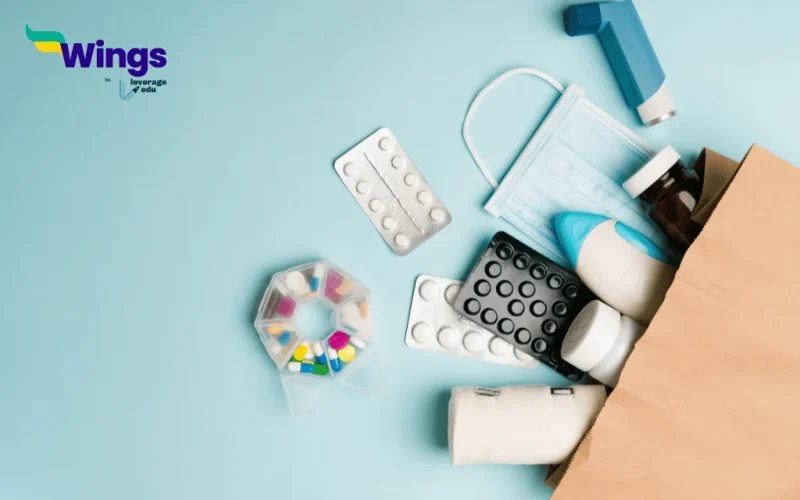Congratulations! You’ve landed that incredible study abroad program – time to pack your bags and get ready for an unforgettable adventure. But amidst the excitement, don’t forget to prioritize your health! Packing a well-stocked mini-pharmacy can ensure you’re prepared for minor ailments and can navigate any health hiccups that might arise.
Study Abroad: How to Manage Medical Emergencies Abroad
So, what should go into your medicine cabinet for study abroad? Let’s explore some essentials:
1. Prescription Powerhouses
- Never leave home without them! Pack enough prescription medications to last the entire duration of your program. Ensure they’re in their original labelled containers with a doctor’s note mentioning the medication name, dosage, and condition. This can be helpful in case of customs inquiries.
- Refill Reminder: Research refill options in your host country. Can you get your prescriptions refilled locally? If not, consider bringing an extra month’s supply just in case.
2. Over-the-Counter (OTC) All-Stars
- Pain Relief: Pack pain relievers like ibuprofen or acetaminophen for headaches, muscle aches, or general discomfort.
- Allergy Allies: If you have allergies, don’t forget your antihistamines! These can help combat seasonal allergies, itchy eyes, or reactions to unfamiliar foods.
- Tummy Tamers: Adjusting to a new diet can be tricky. Pack medications for indigestion, heartburn, or mild diarrhoea. Consider including loperamide (for diarrhoea) and probiotics (to aid digestion).
- Cold and Flu Fighters: A common cold can put a damper on your adventures. Pack decongestants, cough suppressants, and fever reducers to help you recover quickly.
Study Abroad: Countries Offering Walk-In Visas
3. Travel-Sized Champions
- Wound Care: Include bandages, antiseptic wipes, and antibiotic ointment for minor cuts, scrapes, or insect bites.
- Hygiene Essentials: Pack medications you use regularly, like contact lens solutions or feminine hygiene products.
4. Bonus Tip: Pack Smart!
- Double-check restrictions: Research the import regulations of your host country for any medications you plan to bring. Some countries have strict controls on certain medications, so it’s best to be informed.
- Travel-friendly packaging: Decant medications into smaller, labelled containers for easy access and to comply with airline carry-on restrictions.
- Doctor’s note is key: Always carry a doctor’s note for any prescription medications, especially if they contain controlled substances.
Remember: This list is a general guideline. Consult your doctor for personalized advice based on your specific health needs and the region you’re travelling to.
Study Abroad: Know About the Medical Emergency Systems Abroad
Studying abroad is an enriching experience, and staying healthy is key to making the most of it. By packing a smart medical kit, you can tackle minor health issues with confidence and focus on exploring new cultures, making friends, and creating lifelong memories!
Bonus tip: Consider investing in a travel insurance plan that covers medical emergencies. This can provide peace of mind and additional financial security during your studies abroad.
With a little planning and preparation, you can ensure a healthy and happy study abroad adventure! Want more such updates? Make sure you follow Leverage Edu News Updates.


 One app for all your study abroad needs
One app for all your study abroad needs












 60,000+ students trusted us with their dreams. Take the first step today!
60,000+ students trusted us with their dreams. Take the first step today!